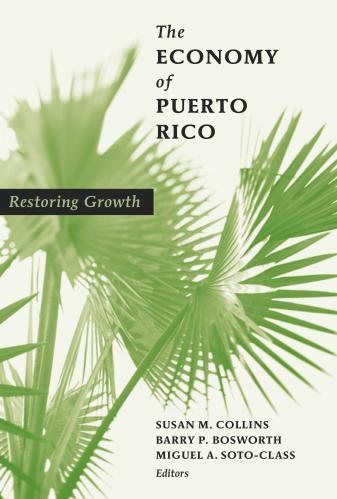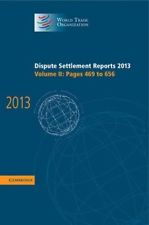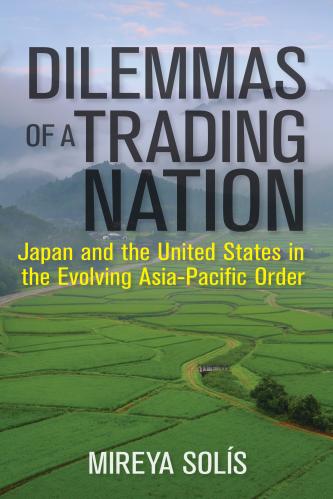Amidst the global pandemic, efforts by middle powers to offer an interim arbitration mechanism at the WTO to handle trade disputes and to commit to maintaining open supply chains in essential medical goods are the right antidote to rising economic nationalism. Japan has much to contribute to these efforts, argues Mireya Solís. This post was originally published in Japanese by Nikkei.
The damage caused by the worst global health crisis in a century is vast. The new coronavirus has traveled far and fast, infecting more than 8.7 million people and killing more than 460,000. One after another, economies have gone into lockdown to slow down the spread of the disease. The combined supply and demand shocks have ravaged the world economy with the most severe downturn since the Great Depression; anticipated drops to international trade and investment flows of 30% and 40%, respectively; and unemployment spikes in many countries. The pandemic has cost lives and livelihoods and has erased the chances of returning to the status quo ante, but it has also brought little clarity regarding what kind of international order it will usher in. Is the future one of deglobalization, decoupling, and reshoring of economic activity?
The pandemic hit an already wounded multilateral trading system. The chances that the World Trade Organization (WTO) can deliver a multilateral round of trade negotiations to slash tariffs across the board and update the trade and investment rulebook are nil. But the WTO has also lost its central role as arbiter of trade disputes among its members. In December 2019, the Appellate Body ceased to function due to the U.S. block of new appointments, citing judicial overreach. At a time of rising protectionism, the erosion of a rules-based mechanism to adjudicate disputes bodes ill.
Longstanding challenges to the WTO have been exacerbated by an abdication of leadership from the great powers to ensure its survival. China has been the godchild of globalization, leveraging its accession to the WTO to become workshop for the world and a huge domestic market coveted by foreign firms. But China lost its appetite for economic reform, reinvesting on a state capitalism model that imposes heavy costs on other nations. Unchecked subsidies and privileges awarded to its state-owned enterprises, insufficient protection of intellectual property, foreign investment restrictions, forced technology transfers, and cyber protectionism all make the Chinese government’s self-proclamation as champion of global free trade ring hollow.
The Trump administration judges the WTO incapable of tackling the China challenge, but instead of creating coalitions of like-minded countries to bring about effective multilateral trade governance, it appears determined to further cripple the international organization. It has offered no blueprint to fix the dispute settlement mechanism, has abused the national security exemption to raise tariffs against allies, and is gearing up for its most fundamental assault to date on the WTO: a tariff reset through which the U.S. may unilaterally abandon its commitments on bound tariffs and apply larger duties to force other countries to open their markets. Trade spats as other countries retaliate in kind is a more likely result.
Tariff wars and the battle for technology supremacy have come to define U.S.-China great power competition. After a grueling trade conflict, the United States and China reached a limited trade agreement in January 2020. The deal marked a pause in the tariff war and addressed some non-tariff barriers on foreign direct investment and intellectual property; but it left intact the core of Chinese industrial policy (public subsidies and state-owned enterprises) and retained U.S. duties on $360 billion worth of Chinese products. China’s massive purchase commitments ($200 billion) were quickly rendered unattainable by the severe economic downturn in China due to COVID-19.
In fighting for the new economic order, setting standards on cutting-edge technologies will be at the forefront. China is using all the levers of industrial policy to gain technological primacy in areas like AI and quantum computing. Telecom and the battle over 5G offer a preview of quarrels to come. Deeply concerned with the cybersecurity risks that Chinese telecom giants like Huawei pose, the U.S. government placed the company on its Entity List, banning American exports without a license. It has since tightened the restrictions by barring foreign companies from supplying Huawei with products manufactured with American equipment and technology. National security concerns are increasingly encroaching on existing webs of economic interdependence. Wary of China’s acquisition of critical technology, countries like the United States, Australia, and Japan have tightened their screening of foreign direct investment. The pandemic has only exacerbated concerns that weakened companies in strategic sectors are at risk of foreign takeover.
COVID-19’s impact on the international trading system is twofold. It has reinforced existing trends such as the deceleration and now drop in the volume of international trade, the rise of economic security as governments expand their toolkit to restrict trade and investment flows, and it has laid bare the fallout in U.S.-China relations. But the pandemic also brought new challenges that exposed the extent to which trade cooperation is in short supply. Export protectionism has risen in prominence with national restrictions on shipments of essential medical supplies and personal protective equipment. The WTO allows for such curbs for public health purposes – provided the measures are temporary and transparent. Few countries, however, have bothered to comply with their notification commitments. The blow comes at a time when the WTO is adrift with the decision of Director General Roberto Azevedo to step down early, opening the search for new leadership in a climate of divisiveness.

Are we on the eve of a renationalized world economy? That is the aspiration of several American and European public officials who fault extended global supply chains and overdependence on China for the current mishaps in tackling the pandemic. But the view that economic nationalism and reshoring of manufacturing is a fail-safe path to security and prosperity is wrong. For one, it skirts the responsibility of governments to properly stockpile essential medical supplies. Furthermore, the export curbs will be counterproductive, eliminating incentives for producers to expand capacity and increasing the cost of much needed medicines and medical devices. If the recent lockdowns have taught us anything, it is that exclusive reliance on the domestic market is too risky. Diversification of supply, redundancies in the manufacturing chain, and stockpiling programs are better alternatives. In this endeavor, global supply chains are part of the solution, not the problem.
COVID-19 will not produce an exodus of foreign companies from the Chinese market. Recent surveys of American companies with operations in China show that most firms intend to stay put. A February survey of Japanese companies conducted by Tokyo Shoko Research shows that only a fraction (4%) are considering exit from China. Therefore, the Japanese government’s $2.2 billion fund to restructure supply chains should be understood as risk management, not decoupling. When international companies map out their business strategies, they must factor in heightened risks – protectionism, national security controls, and economic lockdowns. Hence, efforts by middle powers to offer an interim arbitration mechanism at the WTO to handle trade disputes and to commit to maintaining open supply chains in essential medical goods are the right antidote to rising economic nationalism. As a staunch supporter of rules-based trade and with its decision to forego export protectionism in the current crisis, Japan has much to contribute to these efforts.
The requiem for globalization has been sung many times. Announcements of its demise in the COVID-19 era are likely to prove premature. But it will be a harder-edged globalization forged by the crucible of geopolitical risk and pandemic disruption.







Commentary
The post COVID-19 world: Economic nationalism triumphant?
July 10, 2020